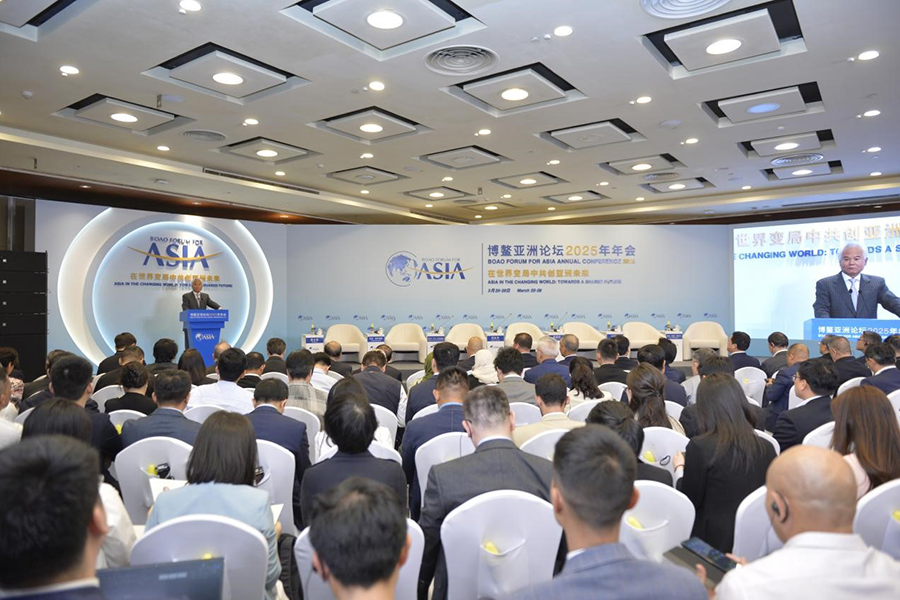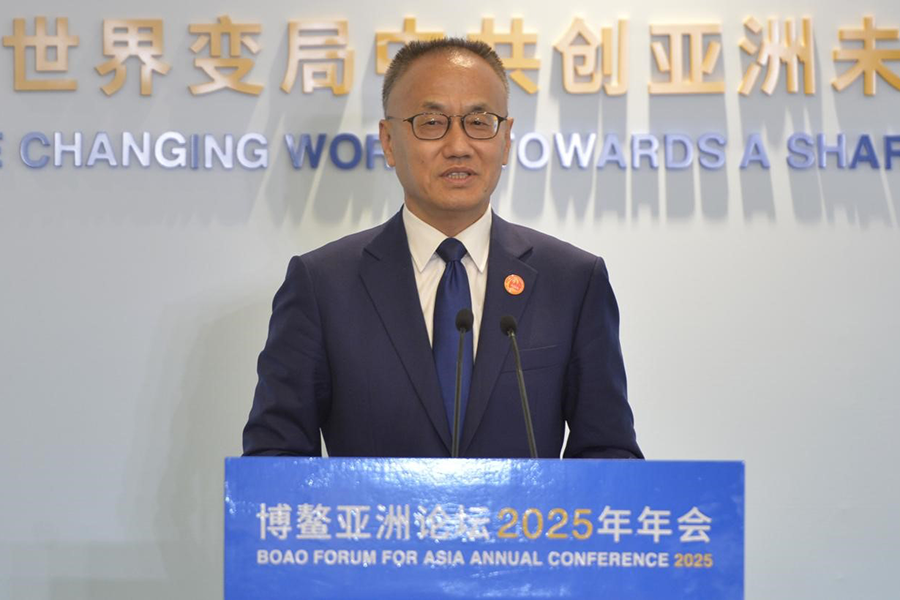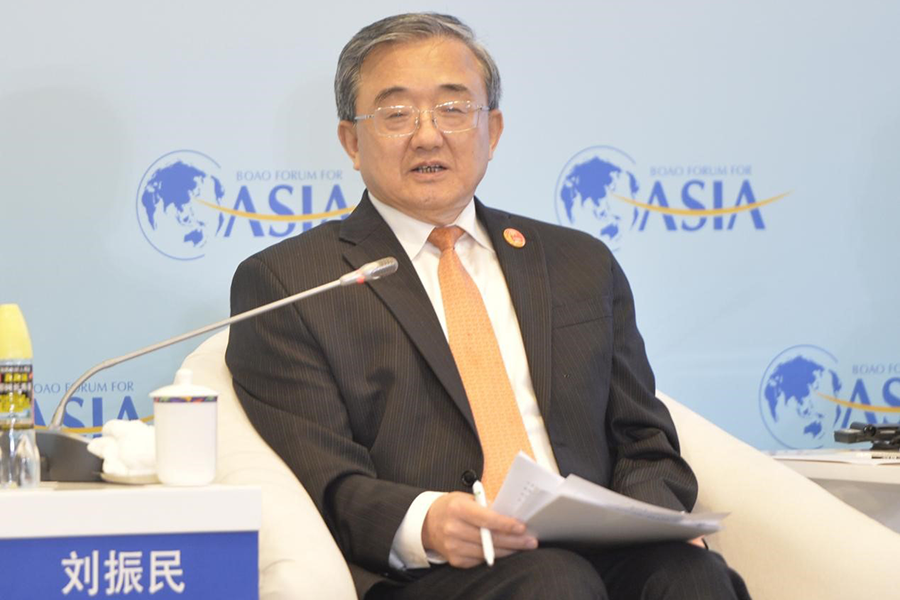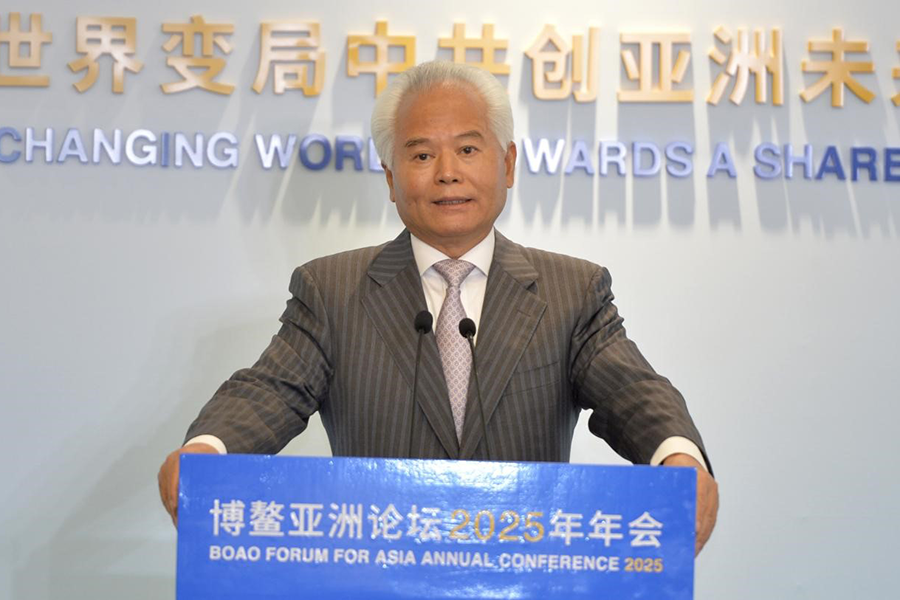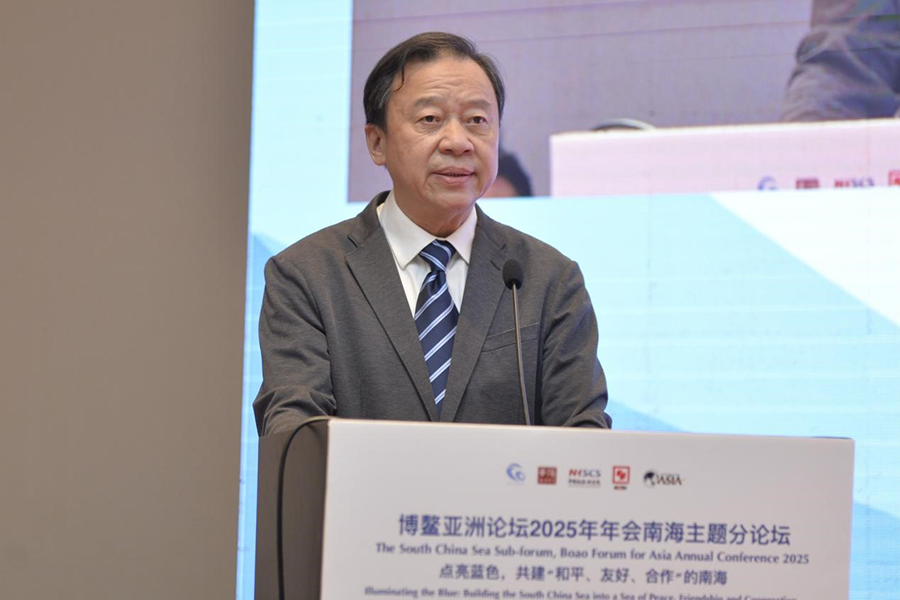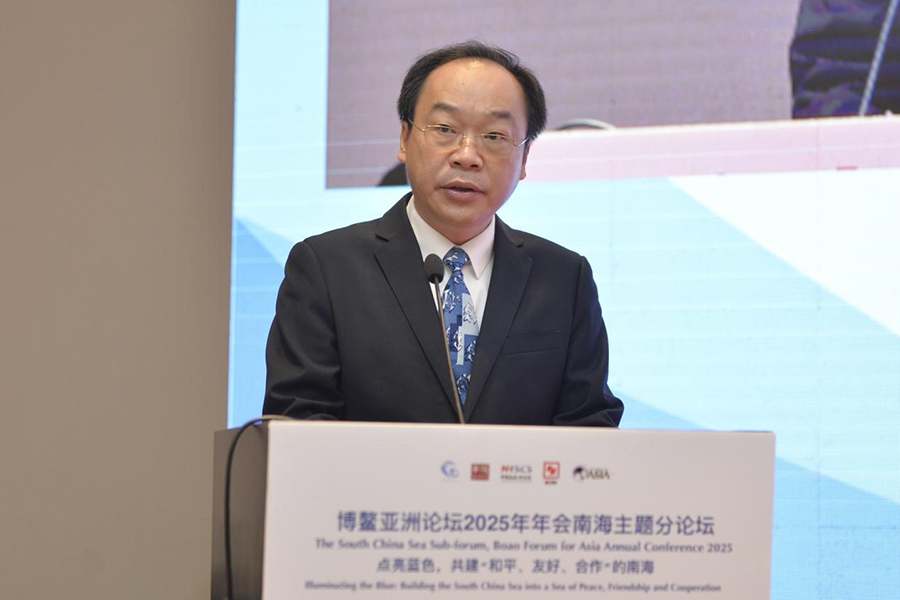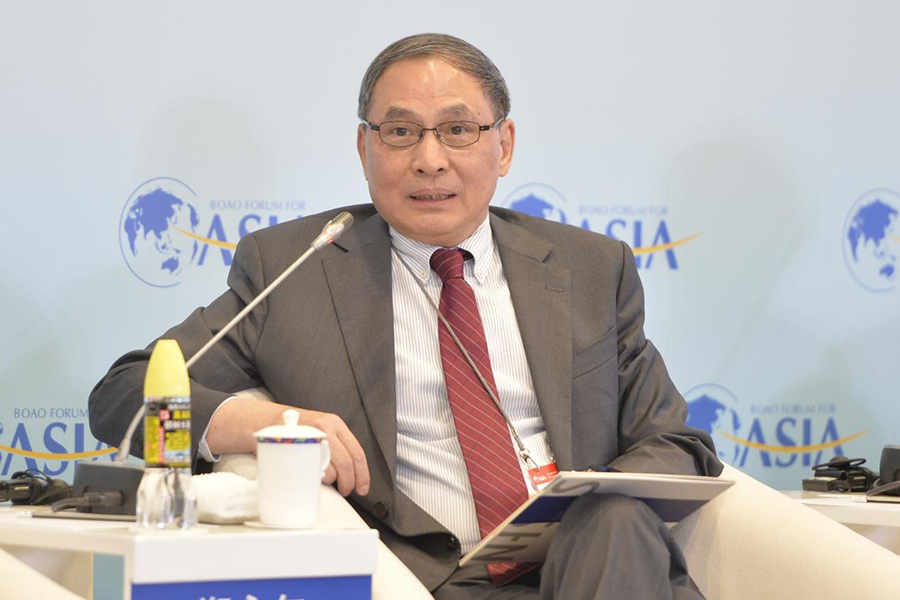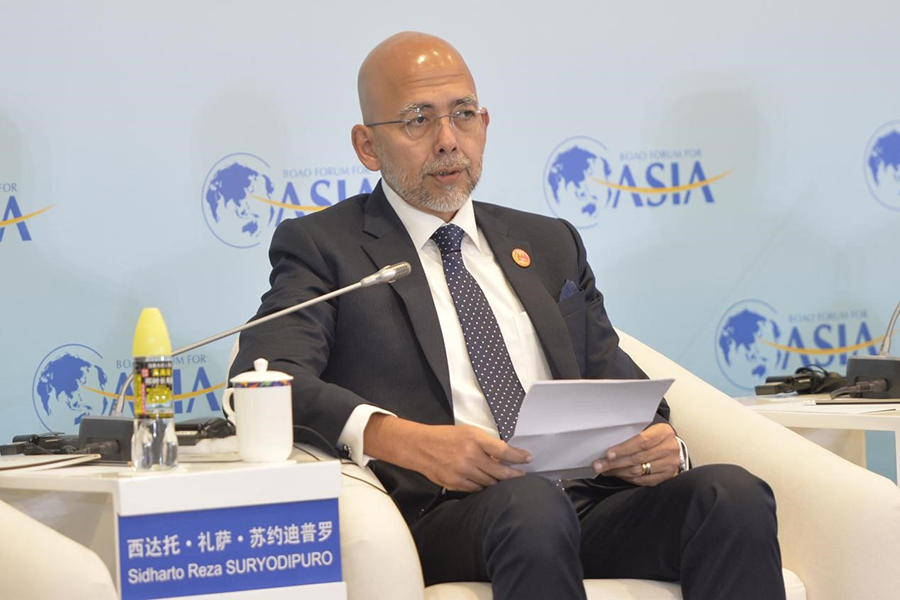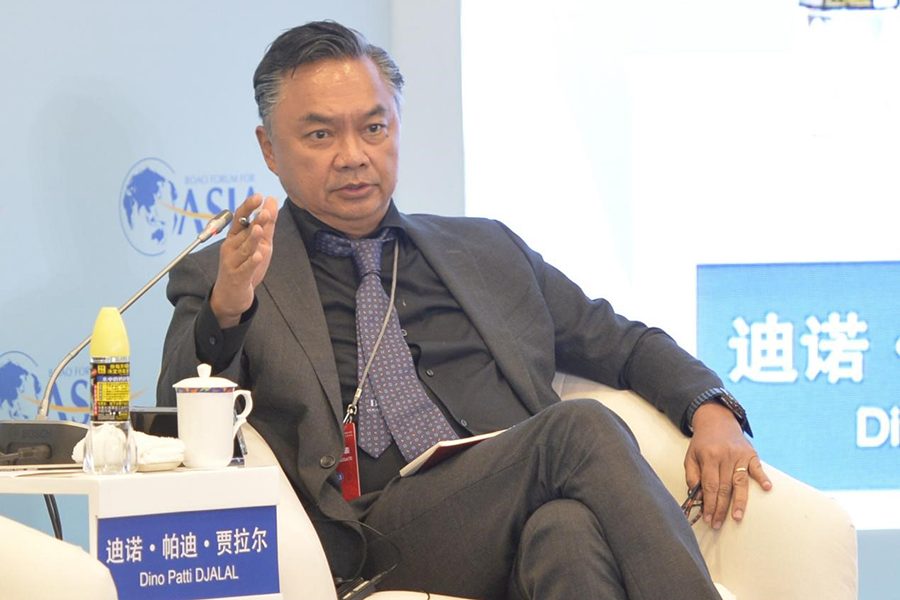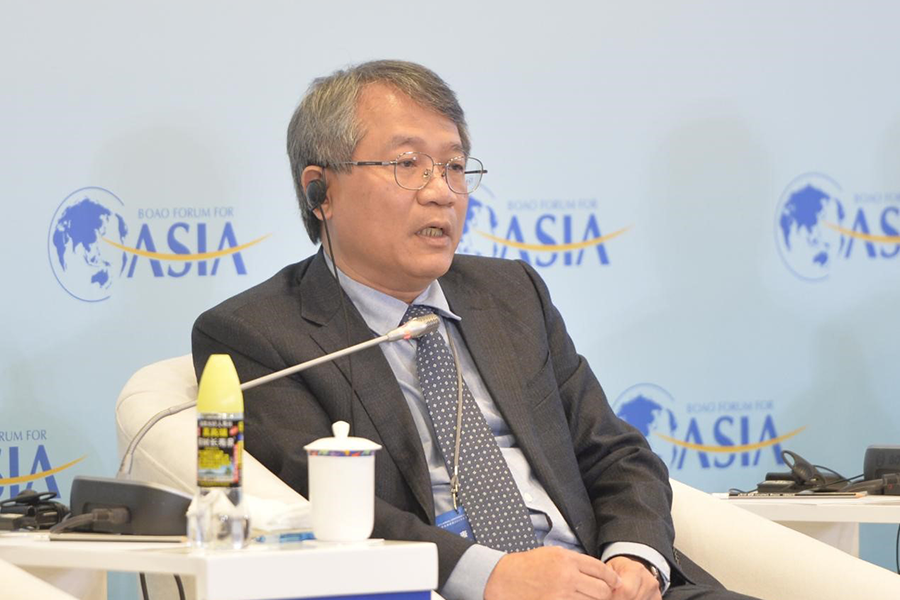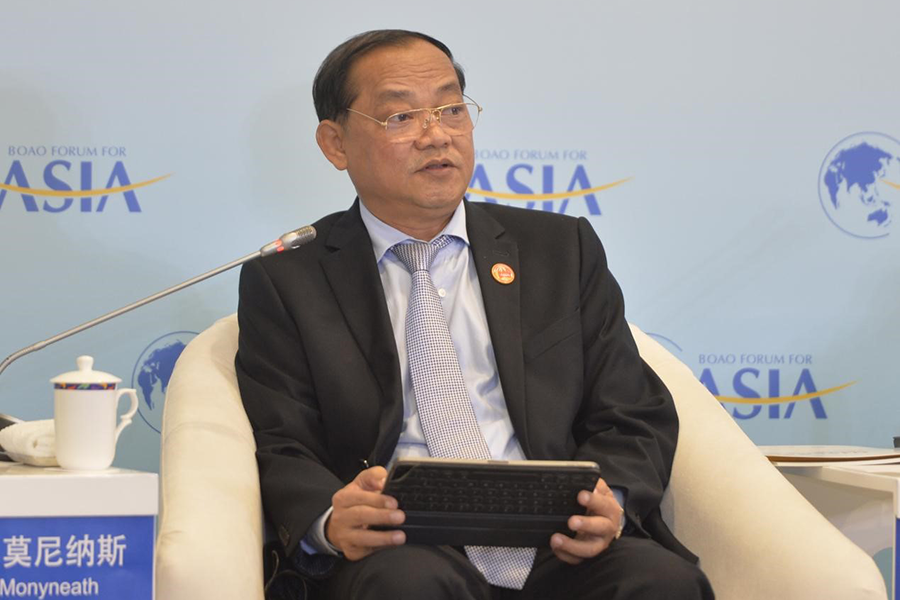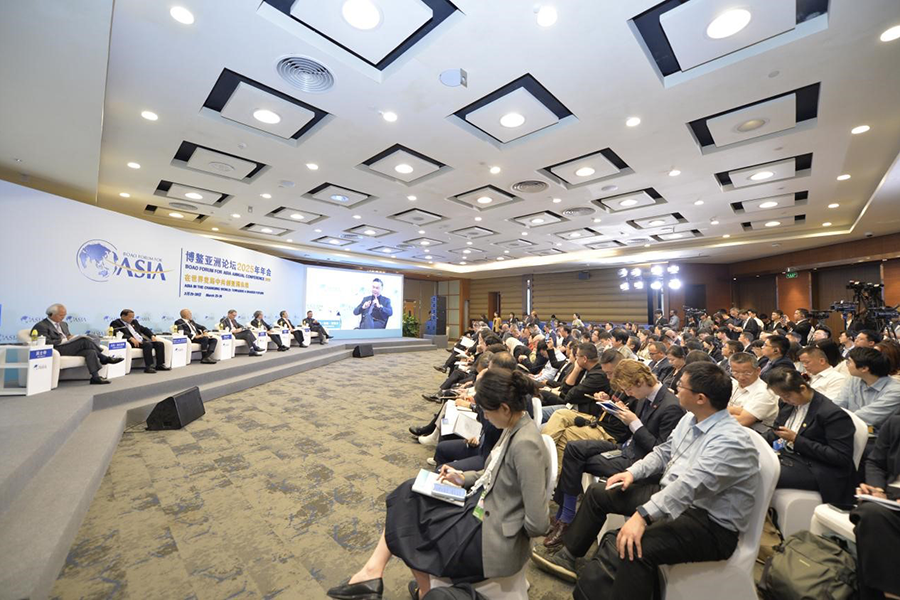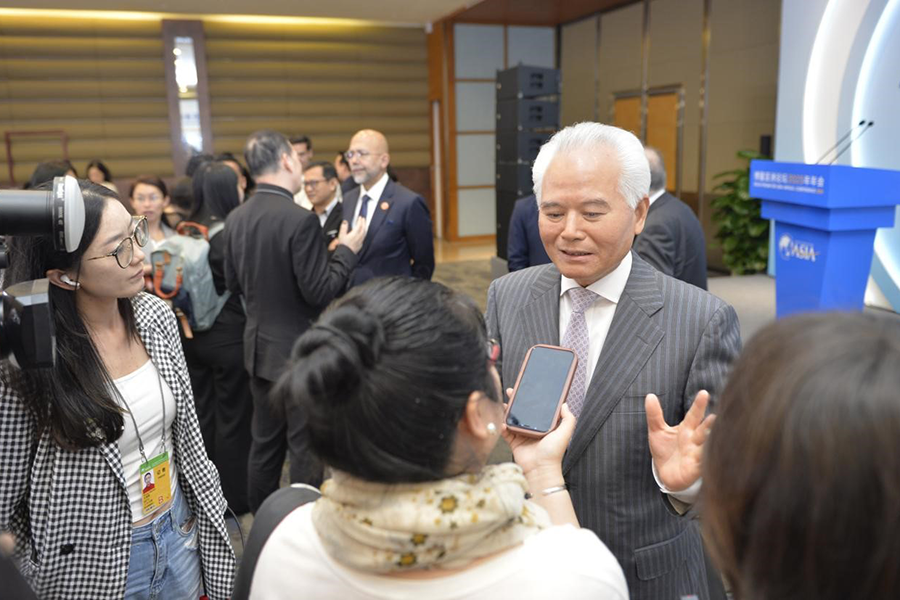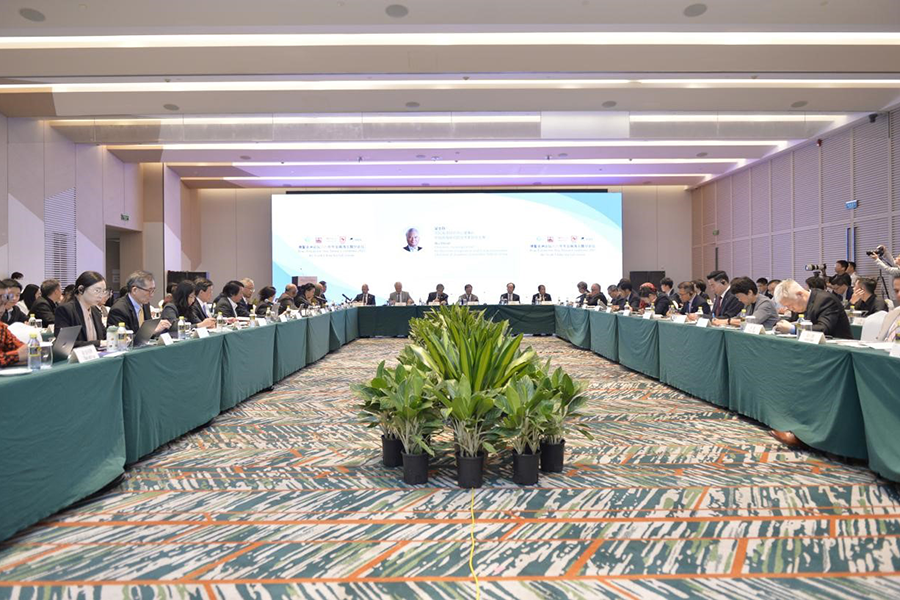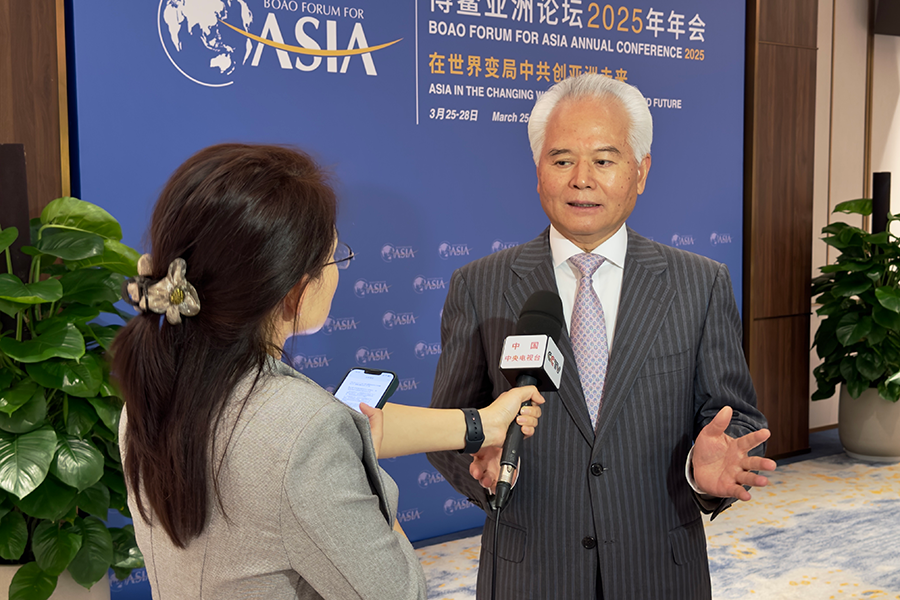On March 27-28, the South China Sea Sub-forum of the Boao Forum for Asia (BFA) Annual Conference 2025 (hereinafter referred to as the "sub-forum") was held at the BFA Permanent Venue. The event was jointly organized by the National Institute for South China Sea Studies (NISCSS), the Huayang Center for Maritime Cooperation and Ocean Governance (hereinafter referred to as the "Huayang Center"), the China Oceanic Development Foundation (CODF), the Chinese Global Program Center of China Media Group (CMG), and the Secretariat of the Boao Forum for Asia.
Nearly 200 experts and scholars, diplomats stationed in China, former political leaders, and government officials from more than 10 countries and regions, including China, the US, the UK, Germany, Canada, Japan, Pakistan, Indonesia, Singapore, Malaysia, Vietnam, Cambodia, the Philippines, and Taiwan Province, attended the sub-forum. The sub-forum lasted two days and consisted of an Open-Door Session and a Closed-Door Session.
The Open-Door Session was chaired by Dr. Wu Shicun, Chairman of the Huayang Center and Chairman of the Academic Committee of the NISCSS. Chinese Vice Foreign Minister Chen Xiaodong delivered the keynote speech.
Prominent scholars and government officials specializing in maritime affairs and regional security studies delivered speeches during the Open-Door Session, including Liu Zhenmin, Special Envoy for Climate Change of China and Former Under-Secretary-General of the United Nations; Sidharto Reza Suryodipuro, Director-General and Senior Official for ASEAN Cooperation of the Indonesian Ministry of Foreign Affairs; Vann Monyneath, Under-Secretary of State for the Cambodian Ministry of Environment; Zheng Yongnian, Dean of School of Public Policy at the Chinese University of Hong Kong (Shenzhen) and the Director of the Institute for International Affairs, Qianhai, China; Nguyen Vu Tung, Senior Advisor and Former President of the Diplomatic Academy of Vietnam; Dino Patti Djalal, Founder and Chairman of Foreign Policy Community of Indonesia and Former Deputy Foreign Minister of Indonesia.
During the Closed-Door Session, Dr. Wu Shicun, together with Lv Bin, Chairman of the CODF, and Han Jinglei, Vice President of the NISCSS, delivered the welcome remarks.
In his keynote speech, Vice Foreign Minister Chen Xiaodong first outlined the historical context and legal basis of China's claim in the South China Sea (SCS) and emphasized that China holds sovereignty over islands in the SCS and adjacent waters, as well as sovereign rights over relevant maritime areas. He noted that certain SCS claimant states have been trying to provoke China in pursuit of illegitimate interests. Meanwhile, some external powers have been frequently playing the "SCS card" and increasing their military presence in the region, posing a significant risk to regional peace and stability. Chen Xiaodong pointed out that China will continue to uphold President Xi Jinping's vision of a maritime community with a shared future, call for all parties to resolve maritime disputes through bilateral negotiation, manage the maritime situation through dialogue and cooperation, prevent and firmly oppose external interference in regional affairs that will disrupt peace and stability of the SCS, and shape the regional order by establishing rules. China, he reaffirmed, will remain a steadfast force for peace and development in the SCS and stands ready to work with all parties to foster lasting peace, stability, and prosperity in the region.
Liu Zhenmin pointed out that Southeast Asian countries should learn from the region's history, cherish the hard-earned peace, and avoid the "NATOization" of Asia. He called for strengthening efforts to build a common security framework for the region. Liu Zhenmin emphasized that China and ASEAN should draw lessons from regional cooperation experiences and actively promote the establishment of the China-ASEAN Blue Economy Partnership. Coastal countries of the SCS should establish a dialogue platform, engage in cooperation on less sensitive issues, expedite negotiations on the Code of Conduct (COC) in the SCS, and seek to resolve disputes and conflicts through dialogue.
Dr. Wu Shicun pointed out that the current situation in the South China Sea remains severe, the outlook for 2025 is still uncertain, and the negative factors affecting regional stability have significantly increased. All parties must enhance mutual trust and establish crisis management mechanisms to prevent further deterioration. Conducting pragmatic maritime cooperation in the SCS is an important component of the 2002 Declaration on the Conduct of Parties in the South China Sea (DOC), which has played a crucial role in fostering political mutual trust and facilitating dispute resolution. In the past 20 years, China, the SCS claimant states, and other ASEAN countries have actively explored feasible pathways to achieve breakthroughs in pragmatic maritime cooperation. However, continuous unilateral actions of some of the claimant states and interference from certain external powers have greatly disrupted the atmosphere for pragmatic maritime cooperation, and, to a certain degree, weakened the political mutual trust foundation necessary for collaboration.
Against such a background, Dr. Wu Shicun suggested that all parties involved should build mutual trust, reduce miscalculation risks through diplomatic consultation, formulation of maritime and airspace behavioral rules, track II academic exchanges, and cooperate in low-sensitivity areas (such as fishery management, search and rescue), to prevent the SCS situation from spiraling out of control due to unforeseen incidents and further advance pragmatic maritime cooperation with tangible outcomes.
Zheng Yongnian emphasized that neither the destructive capacity of the Trump administration on the world order, nor the impact of Trump's policies on US allies and countries that are highly dependent on the US should be underestimated. He also pointed out that China's capability to participate in and uphold the international order should not be undervalued either. In light of the US withdrawal from the international governance system, Asian countries must adhere to the spirit of ASEAN and Asian values, uphold a pragmatic approach, properly manage their differences on SCS issues, and maintain the overall stability of Asia's development.
Sidharto Reza Suryodipuro pointed out that openness and inclusiveness are the basic principles when dealing with the SCS issues. Coastal states of the SCS should deal with their disputes and differences through regional and international cooperation. He noted that China and ASEAN have laid a solid foundation in maritime cooperation, and both sides have been widely appreciated for their interactions under ASEAN-related cooperation frameworks. China and ASEAN have actively supported marine environmental protection and cultural exchanges, and have achieved tangible results in areas such as biodiversity, maritime law enforcement, and maritime security. In the future, China and ASEAN should strengthen their dialogue, promote fishery management cooperation, combat IUU fishing, and jointly safeguard marine ecological balance and sustainable development.
Nguyen Vu Tung pointed out that the Trump administration's foreign policy could change the current international order and influence the future development of the SCS. Coastal states of the SCS should draw lessons from the Ukraine crisis, and strive to maintain their strategic autonomy, avoid armed conflicts, and rebuild trust through peaceful means.
Vann Monyneath pointed out that the sustainable development of the SCS is crucial to the peace and prosperity of the entire Asia-Pacific region. However, regional cooperation in the SCS is facing geopolitical challenges. Coastal states of the SCS should adopt localized approaches, emphasize scientifically informed integrated management practices, and promote the development of a blue economy through diplomatic commitments and international support.
During the two-day conference, attendees expressed their views on promoting the joint construction of a blue, sustainable, and peaceful order in the SCS from various perspectives, including diplomacy, military, security, economy, environmental protection, and humanitarian search and rescue. The scholars unanimously agreed that maintaining stability in the SCS, enhancing cooperation in non-traditional security governance, and promoting regional maritime economic integration serve the common interests of regional countries and also align with the expectations of the international community. Neighboring countries should work together, overcome challenges, and explore a "South China Sea Model" for maritime cooperation. External countries should play a constructive role in fostering pragmatic maritime cooperation in the region.
Since its inception in 2014, the South China Sea Sub-forum of the Boao Forum for Asia Annual Conference has been successfully held for eleven years. The sub-forum is committed to promoting pragmatic maritime cooperation, enhancing political mutual trust, and contributing to the long-term stability of the South China Sea. It aims to provide a high-level, institutionalized multilateral academic exchange platform for experts, scholars, government officials, businesses, and media from both within and outside the region who specialize in SCS or its related issues, and regional maritime cooperation.
This year's sub-forum is themed "Illuminating the Blue: Building the South China Sea into a Sea of Peace, Friendship and Cooperation". Attendees engaged in in-depth discussion on topics of "The Future of Order in the South China Sea: Cooperation or Conflict?", "Construction of the Regional Order in the South China Sea and the COC Consultation", "Environmental Protection Practices and Regional Cooperation in the South China Sea", and "Integrating Regional Marine Economies in the South China Sea".
During the sub-forum, Dr. Wu Shicun accepted exclusive interviews from domestic and international media, including Xinhua News Agency, China Central Television (CCTV), CMG Voice of the South China Sea, China Global Television Network (CGTN), Economic Daily, Beijing Daily, South China Morning Post, Shenzhen TV, Hainan Broadcasting Group, Sansha TV, and Russia Today (RT).
